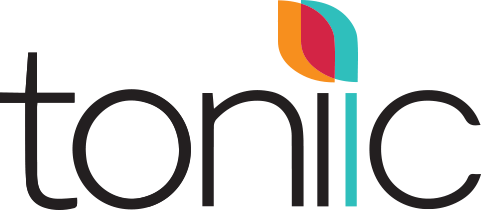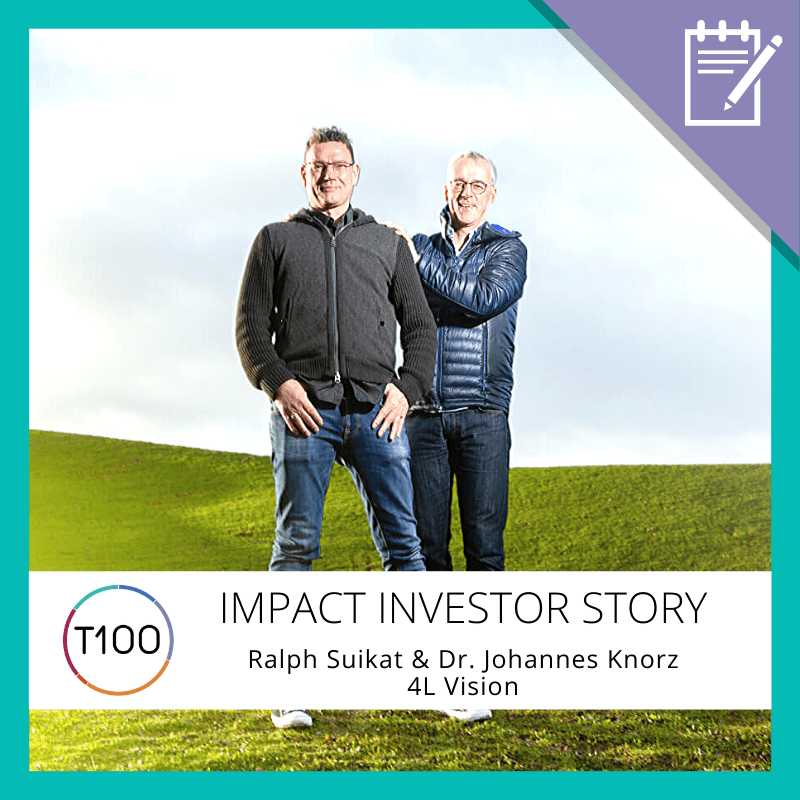(The following is an excerpt from an interview with Dr Johannes Knorz and Peter Brock of 4L Vision family office, which was published in the March 2020 issue of Horizons: Family Office & Investor Magazine. The full interview can be downloaded below.)
Dr. Johannes Knorz: We started as a normal family office investing in various asset classes. We then moved into “green” investments and ESG integration where we then realized that ESG is actually only half way. In the ESG investment paradigm, sustainability is like a side effect: You don’t want to do any harm, but the business itself is not necessarily focused on impact, whereas an impact investor also wants that the business itself is trying to make the world a little bit better ecologically, socially or from a governance point of view. At the moment, we are doing more and more pure or deep impact investments and aim to reach 100% impact investments in all asset classes. This is our approach.
We are also active on the primary market in direct investments, actually financing companies and businesses, both start-ups and later stage. While it’s quite easy or possible to buy shares in listed companies in all industrial sectors, regions and currencies to build an impact portfolio, you are then, however, actually just swapping your money on the secondary market, and that does not really create impact. In our view, the real impact is if you invest fresh money into an impact venture as a direct investment. This additionality and intentionality of specifically targeted impact investments are a key principle for us and other 100% impact investors.
Peter Brock: As you can imagine, a transition to 100% impact is a process over time. As a first step the 4L Vision family office has decided to develop a portfolio of listed stocks from the MSCI World Index that have been specifically selected to be highly impactful based on their own research, while also doing direct investment in private equity and startups.
Dr. Johannes Knorz: Right now, we have about 25% of our assets in seventeen direct shareholdings in companies. Here we have a European focus. Another roughly 25% is in private debt, 25% in real estate and the remaining 25% in listed stocks. In real estate we also follow impact investing principles, focusing both on green buildings that are mainly used for socially responsible applications.
Matthias Knab: You said you want to go 100% impact investing in all asset classes. When you do your new asset allocation, do you have a target return and how do you select your investments?
Dr. Johannes Knorz: The benchmarking is pretty straightforward. There are a lot of publications and discussions about benchmarking and performance measurement in impact investing, but 4L Vision really keep this simple. As a long term investor we are following the principle that truly sustainable business models will also produce higher financial returns over time. So the benchmarks are the respective standard stock market benchmarks.
Peter Brock: The family office has developed its own analytical stock picking process to choose impactful companies over and above normal ESG criteria. The basis is an analysis of fundamental company data, in combination with micro and macro economic data and chart analysis. On top of that their own impact selection process starts with a negative and positive screening along the 17 SDGs (sustainable development goals by the United Nations) supported by Ökom Research, Sustainalytics or other tools. A sustainability committee then selects the current stock allocation on a 4 week rolling basis.
Actually, the impact portfolio performed much better than the benchmark in 2019 – we were up 16% in the equity portfolio.
– Dr. Johannes Knorz:
Matthias Knab: What is your selection process on the impact projects or venture capital side?
Dr. Johannes Knorz: Basically it’s a deal-by-deal decision. It’s solely due diligence to look at the business model, it’s supporting certain impact entrepreneurs, and it’s deciding what kind of theme, what impact do we want to achieve along the lines of the SDGs, the United Nations’ Sustainable Development Goals. For example, 4L Vision is invested in a company that does sustainable insulation work for housing. Clearly, impactful corporate ventures and 4L Vision definitely want to support those. So, for us it is a normal direct investing due diligence process. And I would say – in my history as a corporate financier – it is traditional entrepreneurial venture capital investing – but with a very, very clear impact focus.
We are also investing in a company for cancer medication. Another example is the food company Veganz, a very well-known case in Germany, several impact investors have invested here.
Veganz is developing quite well, we invested there in a very early stage. That´s quite a typical example for our direct investment, which is of course a bit risky sometimes. At the moment, it’s simply our money so we are free to take a bit of a higher entrepreneurial risk.
Together with another entrepreneurial family we are currently planning to set up an impact multi family office with the intention to assist other families in setting up and executing their impact investment strategies. In that case, surely, we will only enter into direct investments and venture capital investing, if they expressly desire this and if it fits their risk appetite.
Peter Brock: You asked about the momentum in Germany – for now, 4L Vision is one of some 20 or so single-family offices here that seriously approach impact investing. But, as Johannes explained, having gone through various iterations of specialization in ESG and impact, the aim is to help making this approach more common by building up a multifamily office which invites other families, other family offices and additional private capital to the impact investing market and share those investment deals, be they direct, liquid or illiquid.

